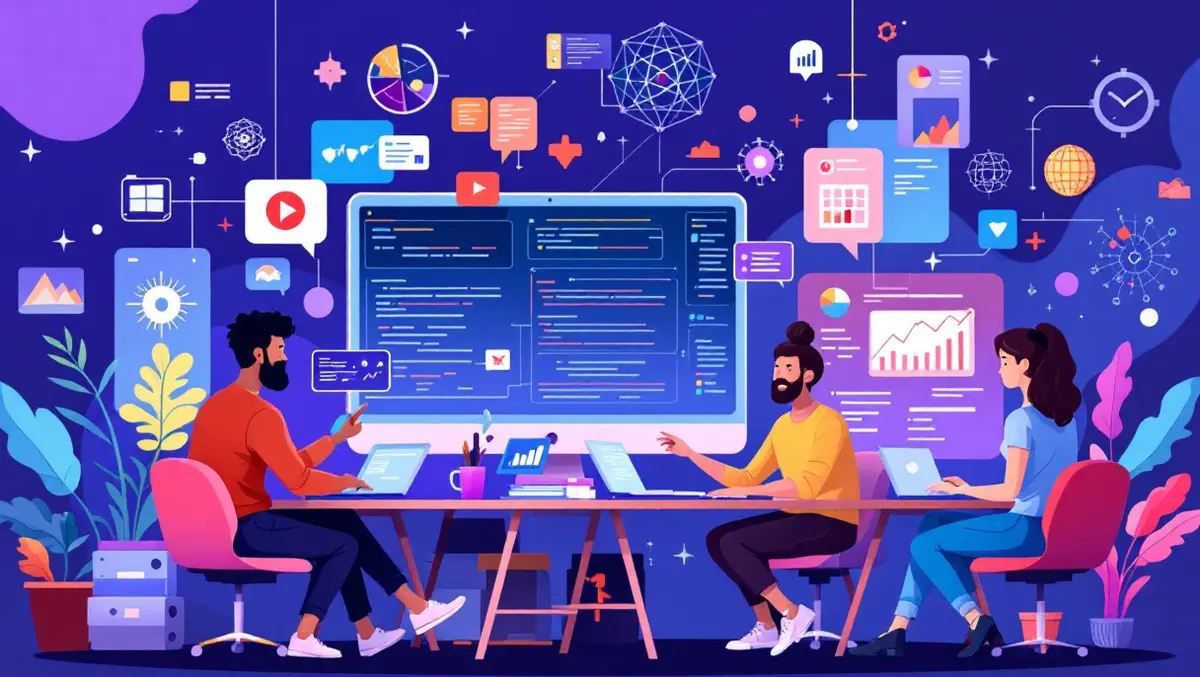
Exclusive: AI needs developers not just data - Google Cloud
Warren Barkley, Head of Product for Vertex AI, GenAI and Machine Learning at Google Cloud, sat down with TechDay to discuss the evolving developer ecosystem, the blurring of lines between Google and Google Cloud, and why AI skills now demand more than just technical fluency.
Having previously built teams at AWS and Microsoft, Barkley offered a comparative lens on the major cloud players. "Microsoft is really approaching it from a very businessy enterprise place… Amazon is very much an infrastructure company," he explained. "Google generally starts from the developer first. Our customers are developers."
That philosophy is clear in Google Cloud's tools. "If you look at the Agent Development Kit or any of the agentic stuff we've built… it's because we are developers. Our customers are developers," Barkley said. He pointed out that the new toolkit recently earned thousands of GitHub stars in 24 hours.
While Gemini is Google's consumer-facing chatbot, Vertex AI is geared towards developers and enterprises. "If I'm building an app and I want to scale my ERP or CRM with billions of usage a day—Vertex is built for that," Barkley said. "It's usually machine learning people, developers and enterprise administrators who are using Vertex."
On the popular notion that many AI startups are "AI wrapper" on top of existing AI models, Barkley acknowledged that a reckoning is coming. "There's going to be a shakeout in the market," he said. "Making money means you have to have something novel and unique."
For new startups looking to build an AI empowered business, Barkley recommended beginning with the new Google Agent Development Kit. "It has the ability to use our models, or third-party models, open-source models," he said. "It's very open and flexible because we know developers are going to use different tools—it's not going to be monolithic."
One of the biggest areas of concern in industries like finance and healthcare is transparency and auditability. Barkley noted that Google's platform has long supported ML Ops tools like model registries and pipeline services. "Those artifacts create a steel thread from data to model to outcome," he explained. "The only work we needed to do was to expand that so it works for GenAI—which is what we did."
Interestingly, Barkley doesn't believe "prompt engineer" is the job title of the future. Instead, he sees value in hybrid skillsets. "People who understand the business and have some sort of technical background are generally the best to actually prompt the model," he said. "Maybe that's the old system analyst type folks now becoming these kind of model collectors."
He elaborated on this with a real-world analogy: "You give our image model Imagen to a photographer and tell them to go prompt it—they understand bokeh, lenses etc. Their ability to create images is much greater than mine. The model understands that language too."
As the demand for more accessible tooling grows, Barkley acknowledged that simplicity can only get someone so far. "You get to a wall where it's very difficult with a wizard-type UI or a vibe coding approach," he said. "You probably need to understand Python to go further."
Barkley acknowledges that the speed of AI and model innovation is clearly a challenge for many developers. "Every Wednesday or Friday, I sit down and go through all the new tools and news I see," Barkley said. "I just spend an hour and winnow it down—here are five things I'm going to focus on exploring each week."
He added that Google teams do weekly peer learning sessions to keep up with the pace of industry change. "Someone will say, 'What is MCP?' and then we dive in," he said. "We're learning from each other all the time."
For startups worried about being weighed down by legacy systems, Barkley said the "sunk cost" dilemma is very real. "The emotional answer is: I spent all that time sweating—I don't want to walk away," he said. "But more fundamentally, how are you structuring your teams and process to take in the speed of innovation?"
He added that developers should consider code refactoring tools powered by AI. "People throw 20,000 lines of code into the model and say, 'Can you simplify this?'—and it comes back with a 5,000-line version."
Even with tools like code generation and translation, Barkley believes organisational agility is still the core issue. "The metabolic rate of my team is fundamentally different than most," he said. "Innovation moves that quickly. Are you set up to take it in?"
Asked how he manages a team in such a high-velocity environment, Barkley was blunt. "You have to remind people to look forward," he said. "If you get too anchored on what happened last week, then you can't look forward."
That adaptability also extends to dependencies. "Either the dependent teams move at the same speed, or you have to be loosely coupled," he explained. By that, he wanted to point out that the pace of change is so fast that you cannot all wait for the slowest team anymore; you must decouple and let teams work at different paces.
In closing Barkley said, "The acceleration makes that much harder than it was in the past… but human creativity continues."


